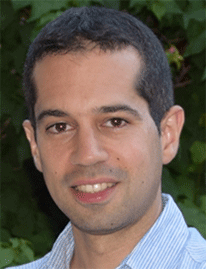 |
| |
By courtesy of the two lecturers of the RSJ Tutorial in IROS 2016, their slides will be available now. |
| |
| Click here |
| |
| |
| Date and time: |
October 12, 10:00 - 12:00 |
| Room: |
Grand Ball Room |
| Fee: |
Free |
|
| |
The Robotics Society of Japan (RSJ) serves a special tutorial for young researchers in IROS aiming at providing the opportunity to relearn basics of "INTELLIGENT" robots and systems for young researchers by inviting distinguished lecturers. This year's theme is SLAM, and the lecturers are as follows. |
| |
Wolfram Burgard
University of Freiburg
"Probabilistic Robotics and SLAM" |
| |
 |
Wolfram Burgard is a professor for computer science at the University of Freiburg and head of the research lab for Autonomous Intelligent Systems. His areas of interest lie in artificial intelligence and mobile robots. Wolfram Burgard's research mainly focuses on the development of robust and adaptive techniques for state estimation and control. Over the past years he and his group have developed a series of innovative probabilistic techniques for robot navigation and perception. They cover different aspects including localization, map-building, SLAM, path-planning, exploration, perception and object recognition. Wolfram has published over 300 papers and articles in robotics and artificial intelligence conferences and journals. He is IEEE, ECCAI and AAAI-Fellow. In 2009, he received the Gottfried Wilhelm Leibniz Prize, the most prestigious German research award. In 2010, he received an Advanced Grant of the European Research Council. Since 2012, Wolfram has been coordinator of the Cluster of Excellence BrainLinks-BrainTools funded by the German Research Foundation. |
|
| |
| |
Davide Scaramuzza
University of Zurich
"Visual Odometry and SLAM: present, future, and the robust-perception age" |
| |
 |
Davide Scaramuzza is a professor of robotics at the University of Zurich, where he does research at the intersection of robotics and computer vision. He did his PhD in robotics and computer vision at ETH Zurich and a postdoc at the University of Pennsylvania. From 2009 to 2012, he led the European project "sFly" which introduced the world's first autonomous navigation of micro frones using visual-inertial sensors and onboard computing. For his research contributions, he was award an SNSF-ERC Starting Grant, the IEEE Robotics and Automation Early Career Award, and a Google Research Award. He coauthored the book "Introduction to Autonomous Mobile Robots" (MIT Press) and more than 80 papers on robotics and perception. |
|
| |
| |
 |
| |











